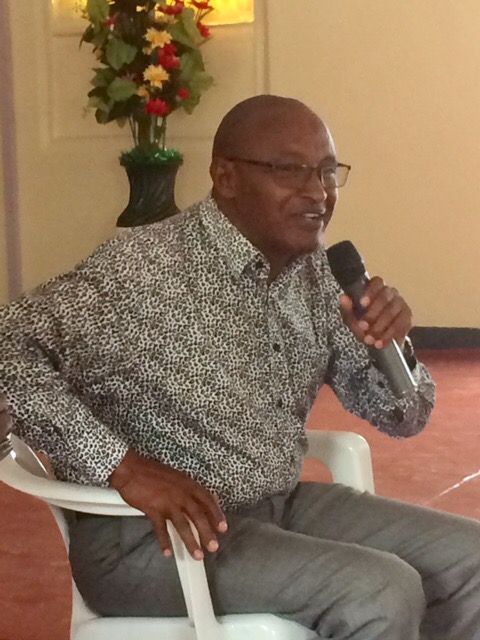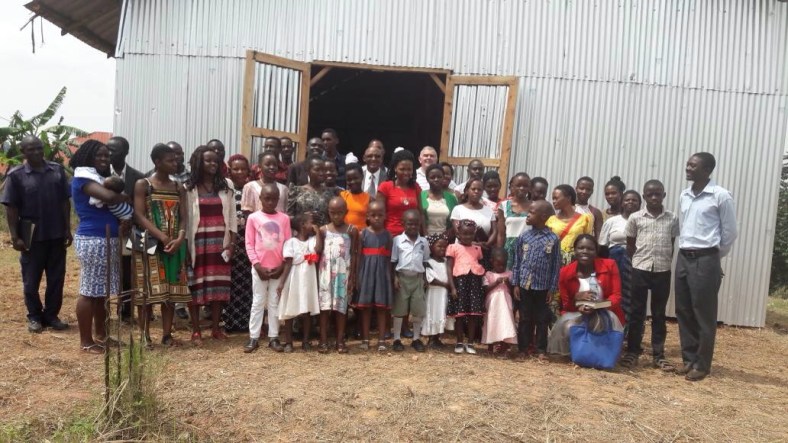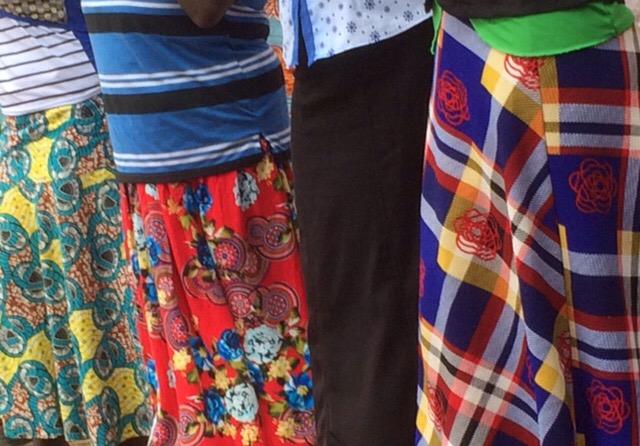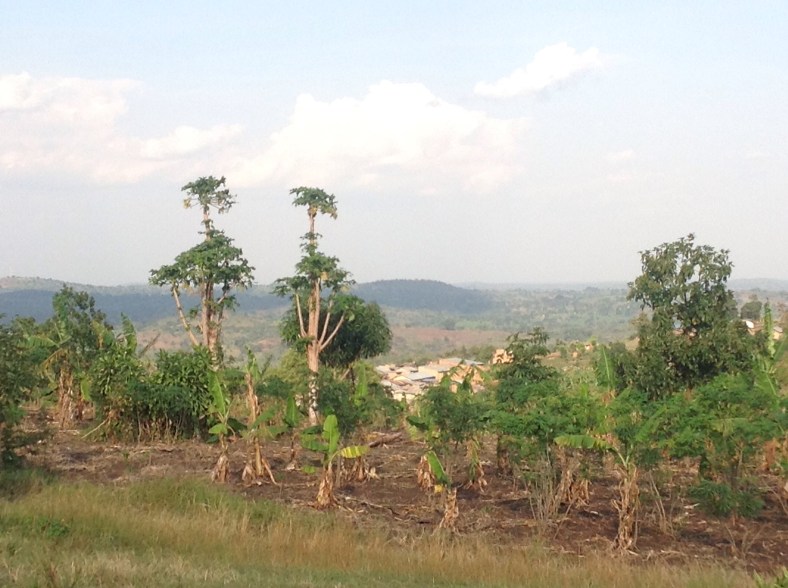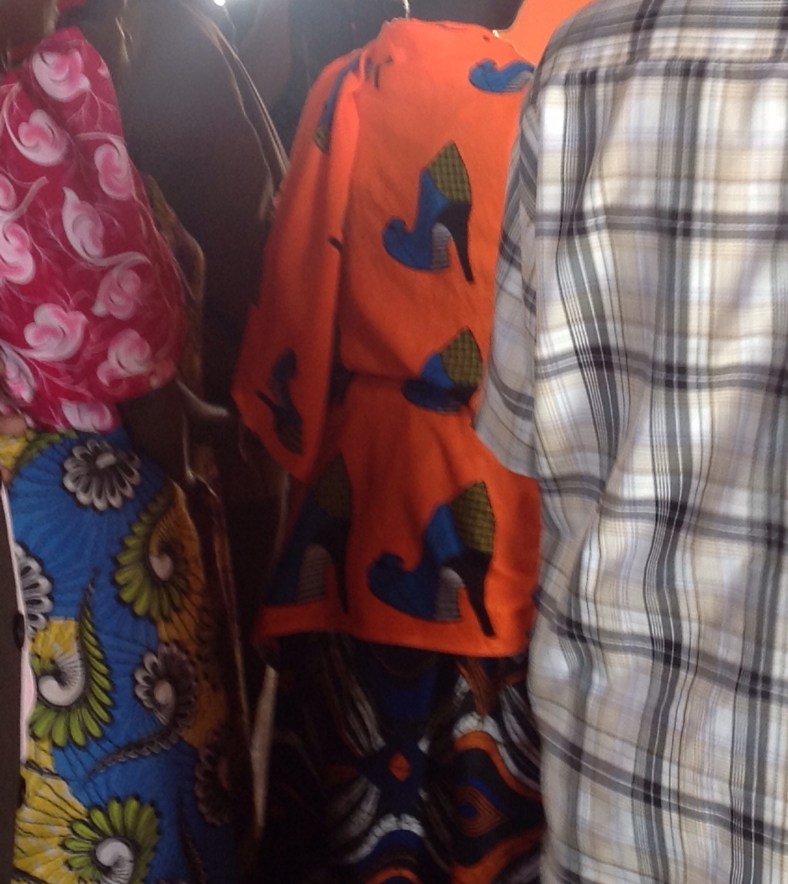Thank you to Jonathan Durke for this guest blog: a study guide to go with a teaching series on the book of RUTH.
Read Ruth 1:1-22
Setting The Scene:
The Book of Ruth is set against the historical backdrop of the Judges. The period of the Judges was a time when men and women were raised up, one after another, to judge the nation of Israel because they had abandoned God for other idols.
Usually these same Judges would lead Israel into battle against the pagan nation that had invaded and enslaved them. They would be victorious and their land would enjoy a time of peace for many years. However, before long Israel would do what was evil in the sight of God, disobey Him, be judged, repent, do battle, win, enjoy peace and, sadly, repeat the cycle all over again!
- Read Judges 2:16-19 for a concise summary of the times of the Judges.
It was a time when everybody did ‘whatever seemed right in their own eyes’ (Judges 21:25). There was no central authority, no king or prophet to lead; there was no unity, each tribe lived in their own land and did their own thing, and there was chaos.
- Discuss what life would look like today in Britain and your own neighbourhood if everyone did whatever seemed right in their eyes.
Beware of drifting:
Read Ruth 1:1-5
A famine occurred in Israel and a man called Elimelek uprooted his family and emigrated from Bethlehem in Judah, where they lived, to Moab, a Gentile country outside of Israel. He took Naomi his wife, Mahlon and Kilion, his two sons, with him.
In Hebrew, Bethlehem means “house of bread”. Ironically, the house of plenty is now empty and has forced this family to go elsewhere. Although they were beleivers in God, their children had Canaanite pagan names, Mahlon means “sickly” and Kilion means “Pining or wasting away”.
After Elimelek’s family settled in Moab, he sadly passed away. His two sons then married Moabite women, one name Orpah and the other Ruth. Marrying Gentile (non-Jewish) people was forbidden in the Old Testament Law because it threatened the covenant relationship between the Israelites and Yahweh.
It appears that this family started in faith, with a privileged heritage, but began to drift away. They left the land of promise, distanced themselves from God’s presence at the Tabernacle, and they entered into an unholy land with unholy relationships.
- Reflect upon your own life, when and why did you drift away from the Lord?
- When you’ve fell on hard times why can it be so easy to drift away from God?
How can we ensure we stay on track and do not drift away for our faithful Provider, the Lord? Let’s look…
Stick With What God Has Promised:
Elimelek had led his family out of the promised land. Israel was a country made up of 12 tribes who were the 12 sons of Jacob. Jacob was a Patriarch and founder of Israel, and he was the son of Isaac and Isaac was the son of Abraham, also founders of Israel. It was to these three men that God had made a promise. More than that, God has committed to a covenant with them and their descendents. God has sworn by Himself to make these patriarch‘s descendants numerous and for them to inherit a land He would give them.
God honoured His covenant promise and brought Israel together and to a land flowing with milk and honey. He helped them do this in spite of their slavery in Egypt and their wilderness wanderings which included hunger, thirst, wars, complaining and lots of unbelief.
Now, Elimelek has left his ancestoral inheritance. He has taken his family away from the presence and provision of God.
- Should Elimelek have left Israel and wisely sought sustenance elsewhere or should he have stayed and trusted God to provide?
- Discuss what you think a godly balance of practical wisdom and faithfulness to God looks like.
Sometimes, instead of sticking to what God has promised we can get stuck with what the World offers. Or, we can find ourselves stuck in our situations and only looking at our problems instead of seeing past them to the God who promises provision and deliverance.
When we get tunnel vision and only see obstacles, we can get frustrated, angry or fearful. When this happens we can easily make bad decisions. Elimelek made a bad decision to leave the Promised Land and allow his family to marry Gentiles.
However, what we can learn from Elimelek’s mistake is to trust God’s promises and trust His timings.
How can we ensure we stay on track and do not drift away? By trusting both God’s promises and timings inspite of our circumstances.
God Brings us to Decision Points:
Read Ruth 1:6-5
After Elimelek and his two sons pass away, Naomi hears that the Lord has provided food and so decides to leave Moab and return to Bethlehem.
Noami tells her daughters-in-law, Orpah and Ruth, to return to their mother’s homes in Moab. Noami makes them both aware of the apparent lack they’ll experience if they follow her. They have no husbands, no work and Naomi can‘t provide for them. She wants to give them all the possibilities. Now the daughters-in-law have to make a decision.
- When you’ve faced a big decision, how have you approached it?
Orpah ended up turning back, but Ruth refused and devoted herself to Naomi, her people and her God.
In Hebrew, the name Ruth means commitment. Ruth stayed and obeyed. When God brings you to decision points, don’t turn from what He calls you to.
How can we ensure we stay on track and do not drift away? By devoting ourselves to God and obeying Him.
Set a Course of Commitment:
Read Ruth 1:16-22
Verse 16 is a remarkable response from Ruth to Naomi and drastically different to Orpah’s response of leaving. Ruth radically commits herself to Naomi, going where she goes, staying where she stays, engaging with who she engages with, believing what she believes, and even dying where she dies.
This demonstrates great commitment.
- Be as honest as you can and reflect together on whether Ruth’s commitment to Naomi could be said of your commitment to Jesus.
- If not, why not and discuss how you could grow in your devotion?
Be encouraged to set a course of commitment to Christ. Be devoted to Him and His Gospel. Resolve to faithfully connect with your local church, your brothers and sisters in the Faith and most of all with God. This last part can be helped with regular Bible reading, prayer, reflection, worship, listening to sermons, creativity, etc.
How can we ensure we stay on track and do not drift away? By committing ourselves to God and engaging with Him.
Conclusion
Beware of drifting from God, but,, if and when you do, remember:
- Stick with what God Has promised by trusting His promises and timings.
- When God brings you to decision points devote yourself to Him and obey Him.
- Set a course of committment by engaging with Him.
